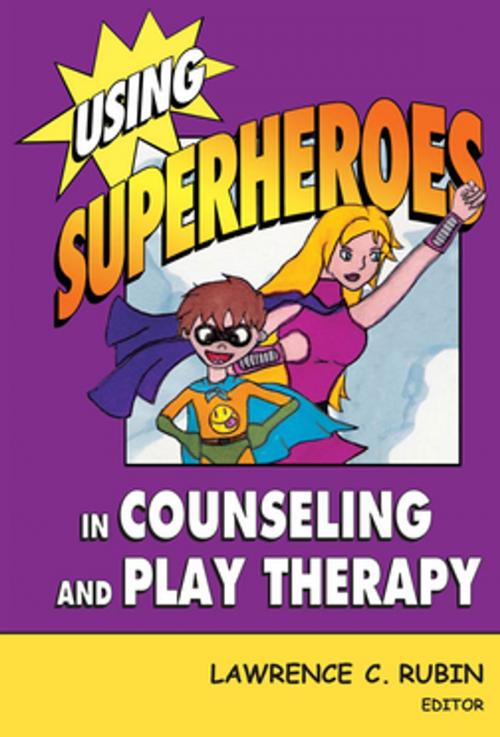Using Superheroes in Counseling and Play Therapy
Nonfiction, Health & Well Being, Psychology, Clinical Psychology| Author: | ISBN: | 9780826101327 | |
| Publisher: | Springer Publishing Company | Publication: | December 20, 2006 |
| Imprint: | Springer Publishing Company | Language: | English |
| Author: | |
| ISBN: | 9780826101327 |
| Publisher: | Springer Publishing Company |
| Publication: | December 20, 2006 |
| Imprint: | Springer Publishing Company |
| Language: | English |
Harness the Therapeutic Power of the Superhero!
- Application of the Star Wars Adoption Narrative
- Emotional Literacy and the Incredible Hulk
- Batman and Trauma
- What Would Superman Do--An Adlerian Approach?
With an incisive historical foreword by John Shelton Lawrence and insight from contributors such as Michael Brody, Patty Scanlon, and Roger Kaufman, Lawrence Rubin takes us on a dynamic tour of the benefits of using these icons of popular culture and fantasy in counseling and play therapy. Not only can superheroes assist in clinical work with children, but Rubin demonstrates how they can facilitate growth and change with teen and adults. Early childhood memories of how we felt pretending to have the power to save the world or our families in the face of impending danger still resonate in our adult lives, making the use of superheroes attractive as well, to the creative counselor.
In presenting case studies and wisdom gleaned from practicing therapists' experience, Lawrence Rubin shows how it is possible to uncover children's secret identities, assist treatment of adolescents with sexual behavior problems, and inspire the journey of individuation for gay and lesbian clients, all by paying attention to our intrinsic social need for superhero fantasy and play.
Harness the Therapeutic Power of the Superhero!
- Application of the Star Wars Adoption Narrative
- Emotional Literacy and the Incredible Hulk
- Batman and Trauma
- What Would Superman Do--An Adlerian Approach?
With an incisive historical foreword by John Shelton Lawrence and insight from contributors such as Michael Brody, Patty Scanlon, and Roger Kaufman, Lawrence Rubin takes us on a dynamic tour of the benefits of using these icons of popular culture and fantasy in counseling and play therapy. Not only can superheroes assist in clinical work with children, but Rubin demonstrates how they can facilitate growth and change with teen and adults. Early childhood memories of how we felt pretending to have the power to save the world or our families in the face of impending danger still resonate in our adult lives, making the use of superheroes attractive as well, to the creative counselor.
In presenting case studies and wisdom gleaned from practicing therapists' experience, Lawrence Rubin shows how it is possible to uncover children's secret identities, assist treatment of adolescents with sexual behavior problems, and inspire the journey of individuation for gay and lesbian clients, all by paying attention to our intrinsic social need for superhero fantasy and play.















